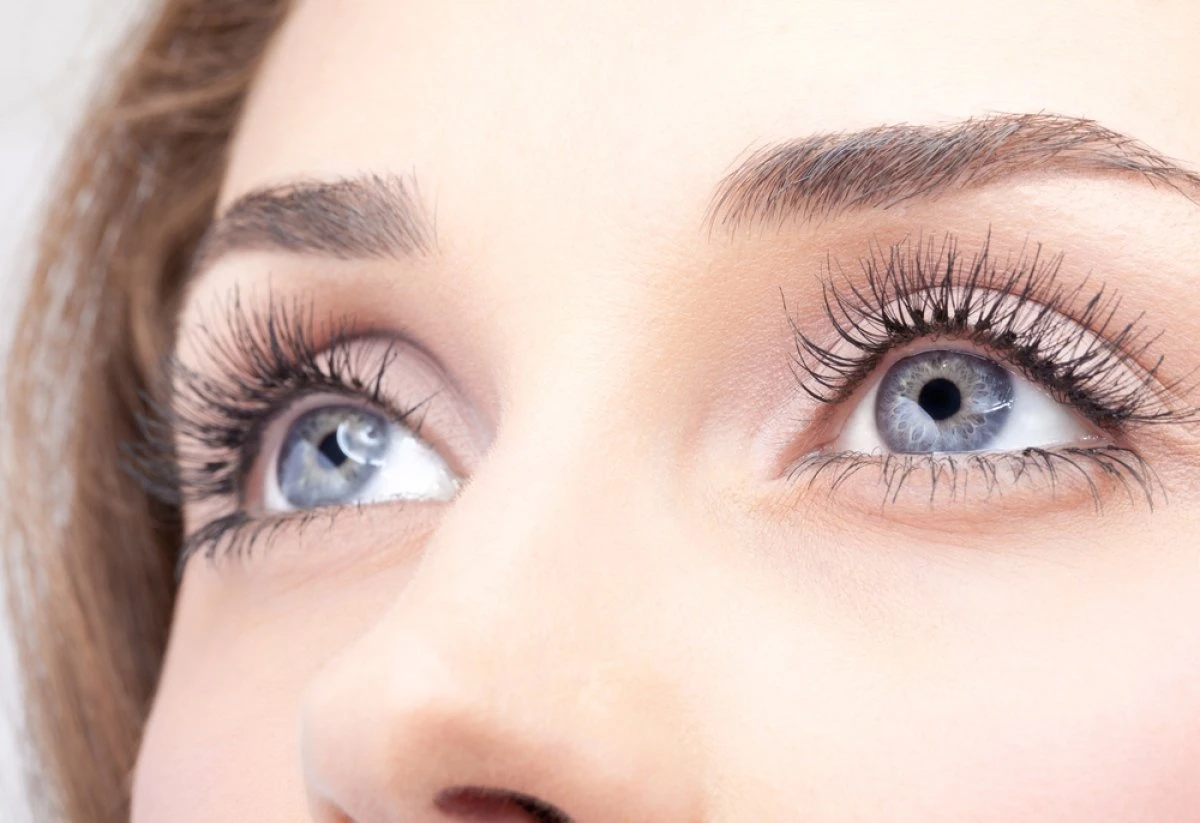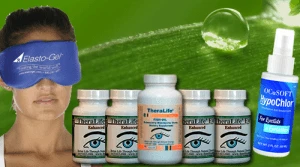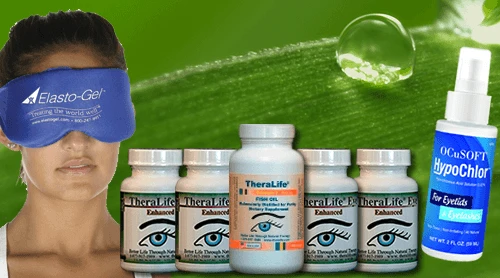Theralife.com highlights how stress can exacerbate blepharitis by disrupting the eye’s tear film and promoting inflammation. Stress-induced changes can lead to bacterial overgrowth and meibomian gland dysfunction, worsening symptoms. In response, Theralife offers unique oral eye treatment products designed to alleviate these issues. As the only company providing this type of oral eye care, Theralife’s solutions aim to restore balance to the ocular surface and enhance tear composition, thereby reducing irritation and discomfort. Customers benefit from targeted strategies that not only manage but also prevent blepharitis flare-ups, improving overall eye health and comfort.
Best Oral Blepharitis Treatment from TheraLife
Add To Cart
Key Takeaways
- Psychological stress can trigger or worsen by disrupting ocular surface homeostasis through increased cortisol production.
- Chronic stress alters tear film composition and promotes bacterial overgrowth, increasing the risk of its flare-ups.
- Stress-induced immune dysregulation raises pro-inflammatory cytokines, aggravating eyelid tissue irritation and inflammation.
- Stress disrupts autonomic regulation of tear secretion, contributing to dry eye symptoms often seen with it.
- Effective stress management can help stabilize tear film and reduce the frequency and severity of its symptoms.
Symptoms and Causes

Although blepharitis is a common ocular surface disorder, it manifests primarily as eyelid margin inflammation characterized by redness, swelling, irritation, and crusting at the lash line. You may experience additional symptoms such as burning, foreign body sensation, excessive tearing, photophobia, and recurrent chalazia. The causes of it are multifactorial, most often involving chronic bacterial colonization—typically Staphylococcus species—or dysfunction of the meibomian glands, leading to altered tear film stability. Contributing factors include seborrheic dermatitis, rosacea, and allergic reactions. If you notice persistent eyelid discomfort or visual disturbances, recognize that chronic inflammation may cause conjunctival hyperemia and, in severe cases, corneal involvement. Early identification of the symptoms of blepharitis and understanding the underlying causes of blepharitis facilitate timely management and reduce complications. Inflammatory cytokines, such as IL-1beta, TNF-alpha, and IL-8, are involved in the inflammatory processes associated with blepharitis, playing a significant role in the disease’s pathology.
The Science of Stress and Its Effects on the Body
When you encounter stress, your body initiates a complex cascade of neuroendocrine responses, primarily orchestrated by the hypothalamic-pituitary-adrenal (HPA) axis.
This system activates the release of corticotropin-releasing hormone (CRH), triggering adrenocorticotropic hormone (ACTH) secretion and ultimately stimulating your adrenal glands to produce cortisol. The cortisol response regulates metabolism, immune modulation, and inflammatory processes.
Concurrently, neurotransmitter impact becomes evident as stress alters levels of serotonin, dopamine, and norepinephrine, modulating mood, alertness, and physiological arousal. These neurochemical shifts affect autonomic functions, such as heart rate and vascular tone.
Chronic activation of the HPA axis and persistent cortisol elevation can dysregulate immune responses and promote systemic inflammation. Understanding these molecular mechanisms highlights how stress influences your overall physiological state, preparing you for potential threats. The use of immuno-modulators, anti-inflammatory agents and other components can help regulate immune system responses during stress.
How Stress Can Affect Eye Health
Given the intricate relationship between psychological stress and physiological function, stress exerts notable effects on ocular health through several mechanisms.
Elevated stress levels can disrupt the autonomic regulation of tear secretion, leading to ocular surface instability and reduced lubrication. You may notice increased visual fatigue as stress amplifies sympathetic nervous system activity, causing sustained ciliary muscle tension and impairing eye relaxation.
Additionally, chronic stress can promote systemic inflammation, which may alter the ocular microenvironment and compromise barrier integrity. As a result, symptoms such as eye discomfort, transient blurred vision, and photophobia can manifest.
For those experiencing dry eyes due to autoimmune conditions, TheraLife Autoimmune offers a non-invasive relief option by targeting the underlying causes of dryness and restoring moisture levels.
Connections Between Stress and Flare-Ups

Emerging evidence indicates that psychological stress can precipitate or exacerbate flare-ups by modulating immune and inflammatory pathways. When you experience stress triggers, your body responds by releasing cortisol and other stress mediators. These mediators can disrupt the ocular surface homeostasis, amplifying the inflammation response within the eyelid margins. Maintaining optimal humidity levels is crucial as it prevents exacerbation of dry eye symptoms, which are often linked. Elevated stress levels alter tear film composition, promoting bacterial overgrowth and meibomian gland dysfunction, both of which are central in blepharitis pathogenesis. Stress-induced immune dysregulation increases the production of pro-inflammatory cytokines, further aggravating tissue irritation and edema.
Recognizing Stress-Related Symptoms
Several hallmark symptoms can help you identify episodes influenced by psychological stress. When stress levels rise, you may notice an increase in eyelid irritation, often presenting as redness, swelling, or a gritty sensation. These manifestations can be linked to stress indicators such as fatigue, sleep disruption, or heightened anxiety, which are known to exacerbate inflammatory pathways in the eyelid margin. Monitoring these symptoms allows for early recognition and intervention. Consistent poor hygiene practices can further aggravate symptoms, making stress management and regular eyelid care vital for alleviating discomfort.
| Symptom | Stress Indicator Present |
|---|---|
| Eyelid redness | Emotional distress |
| Gritty eye sensation | Sleep disturbance |
| Increased swelling | Persistent anxiety |
You might observe that stress intensifies eyelid discomfort, leading to more frequent or severe flare-ups. Recognizing these clinical features is essential in understanding the interplay between psychological factors and blepharitis symptomatology.
Stress Management Techniques to Support Eye Health
Although psychological stress can worsen symptoms, targeted stress management techniques offer measurable benefits for ocular surface health.
Implementing meditation practices, such as mindfulness-based stress reduction, can decrease systemic inflammation and modulate the neuroendocrine response associated with stress-induced ocular surface changes.
Evidence indicates that relaxation techniques—controlled breathing, progressive muscle relaxation, or guided imagery—reduce autonomic arousal, thereby stabilizing tear film homeostasis and limiting exacerbation of meibomian gland dysfunction.
When you adopt these interventions consistently, you enhance your parasympathetic activity, which may support lacrimal gland secretion and improve eyelid margin health.
Integrating daily meditation practices and structured relaxation techniques into your routine can mitigate the cycle of stress and ocular surface inflammation, providing adjunctive support to conventional therapies and promoting overall eye comfort and function.
A crucial aspect of managing blepharitis is maintaining regular eyelid hygiene to minimize symptom recurrence and support eye health.
When to Seek Professional Help

When should you consult an eye care specialist for blepharitis? If you experience persistent eyelid inflammation, recurrent styes, blurred vision, or worsening symptoms despite diligent eyelid hygiene, it’s vital to seek a professional evaluation.
Chronic cases may indicate underlying conditions such as seborrheic dermatitis, rosacea, or meibomian gland dysfunction that require targeted management. A thorough examination allows your provider to differentiate between bacterial, inflammatory, or mixed etiologies.
Timely intervention can prevent complications like corneal involvement or chronic discomfort. Professional evaluation is also essential if you notice changes in vision, significant pain, or an inadequate response to over-the-counter treatment options.
Early diagnosis facilitates tailored treatment options, including prescription medications, in-office procedures, or advanced therapies, optimizing outcomes and reducing the risk of long-term sequelae. It is important to recognize that Demodex mites can contribute to approximately 30% of chronic cases, underscoring the need for a comprehensive diagnostic approach.
Best Oral Treatment from TheraLife
Add To Cart
Frequently Asked Questions
Can Diet Changes Help Reduce Stress-Induced Blepharitis?
You can support stress-induced blepharitis by making dietary adjustments, such as increasing omega-3 fatty acids, antioxidants, and hydration.
These changes may reduce eyelid inflammation and improve meibomian gland function.
Combining dietary adjustments with effective stress management strategies—like mindfulness or exercise—can further decrease flare-ups.
Evidence suggests that nutritional optimization and stress reduction synergistically improve ocular surface health, though you should consult your ophthalmologist for personalized recommendations and ongoing symptom evaluation.
Are Certain Medications Linked to Stress-Related Blepharitis?
You may notice that certain medications, such as corticosteroids or antidepressants, can affect tear production or immune function, which could exacerbate blepharitis symptoms during periods of stress.
Medication effects on the ocular surface may impair your ability to manage inflammation effectively.
To optimize stress management and minimize blepharitis flares, collaborate with your healthcare provider to review your medication regimen and consider alternative therapies that have less impact on ocular health.
Is Blepharitis Contagious if Triggered by Stress?
Imagine rubbing your irritated eyelids after a long, stressful day—worry not, stress triggers blepharitis, but it’s not contagious.
Blepharitis transmission doesn’t occur from person to person when it’s induced by psychological or physiological stressors. Evidence shows that stress disrupts immune regulation and sebum production, causing inflammation.
However, no clinical data supports the spread of stress-induced blepharitis through direct or indirect contact, distinguishing it from infectious eyelid disorders.
Can Children Experience Stress-Related Blepharitis?
Yes, as a parent or caregiver, you should know that children can experience stress-related blepharitis.
Clinical evidence suggests that child stress can trigger inflammatory responses, potentially exacerbating blepharitis symptoms such as eyelid redness, irritation, and crusting.
Stress-induced hormonal changes may affect the meibomian glands, disrupting tear film stability.
It’s important to monitor emotional well-being and consult a pediatrician if you notice persistent blepharitis symptoms in your child.
Does Exercising Regularly Lower the Risk of Blepharitis Flare-Ups?
Regular exercise benefits your overall health by enhancing systemic circulation and supporting immune function, both of which may help reduce inflammatory responses associated with blepharitis.
Additionally, exercise is a proven strategy for stress management, and since stress can exacerbate ocular surface inflammation, maintaining a consistent exercise regimen can potentially lower the risk of blepharitis flare-ups.
Evidence suggests that integrating physical activity supports ocular surface stability and modulates inflammatory pathways contributing to blepharitis.
Best Oral Treatment from TheraLife
Add To Cart
Conclusion
TheraLife is the only company providing oral eye treatment care, offering a unique approach to managing blepharitis. Their products are designed to benefit customers by addressing underlying causes of eye conditions and providing relief from symptoms. Stress is known to trigger or worsen blepharitis, and TheraLife’s comprehensive solutions can help by promoting relaxation and improving eyelid hygiene. If persistent symptoms occur, consulting an eye care professional is advised for targeted treatment and guidance. For more on how TheraLife’s products can benefit you, visit their website.





